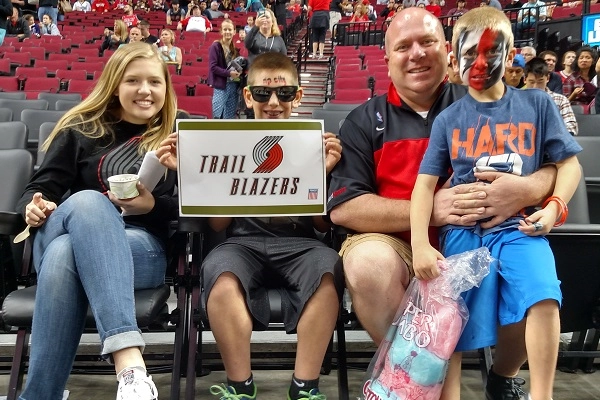Smoker goes “cold turkey” and quits smoking after 30 years


Many people can tell you to quit smoking, but until you decide it for yourself, it isn’t going to happen.
Matt M. said, “You have to get in a mental state that you are not forced to do it…that you are doing it on your own.” And that is what he did.
“I got sick of it. I was tired of the way I smelled and tired of the way I felt. I was tired of the way it controlled me,” he said.
Matt never liked smoking in front of the children and when he caught himself thinking how to smoke away from them, he had his aha moment. “I realized my priorities were screwed up. What kind of idiot am I?” he said.
“I decided for me I needed to quit,” Matt said. “I had been chewing and smoking for the better part of 30 years.”
Matt signed up for quitnow.net/oregon and received free nicotine patches. He then signed up for the Salem Health Freedom from Smoking class at the Community Health Education Center. He quit smoking before he started the class and went to meetings once a week for two months.
“I don’t think I could have gone ‘cold turkey’ without the patch and classes,” Matt said. “Hearing others’ stories made me frustrated that I got stuck in the habit. I couldn’t believe I was in this position. It made me angry and willing to leave it behind and go forward.”
Matt said the first two weeks were the hardest. “I had a feeling like I lost a friend in a way,” he said. “I used to get in the car, take a chew, drive home from work and that was my habit.”
His biggest key to quitting was his family. “I told my fiancé, kids, mom and sisters what I was going to do and to hold me accountable,” he said. “I committed and got everyone involved. I was getting texts from mom and my family and was proud. I didn’t want to screw it up,” Matt said.
Matt quit smoking and chewing over a year ago. “I have spent more time with my family,” he said. “I haven’t relapsed. I thank myself and God that I decided to do it.”
Another benefit is the money he is saving. Matt said, “I spent upwards of $200 a month on tobacco. I took that same $200 and stuck it into an IRA plan. It has been a year and I have several thousand dollars in there.”
According to Nancy Baldwin, Freedom from Smoking class instructor, quitting smoking is deeply personal.
“People who commit to quitting find a way that works for them,” Baldwin said. “There isn’t a right or wrong way.”
A recent study published in the Annals of Internal Medicine split would-be quitters into “cold turkey” and gradual groups. Half quit abruptly for two weeks and half reduced smoking for two weeks. At four weeks, 49 percent of the abrupt quitters were smoke-free and 39 percent of the gradual quitters hadn’t started smoking again. At six months, 22 percent of the abrupt quitters, and 16 percent of the gradual quitters, were still successful.
“Both approaches are viable,” said Baldwin. “Quitting smoking is the most important step you can take to improve the length and quality of your life, no matter how you choose to do it.”
If you are interested in quitting smoking, sign up for the American Lung Association Freedom from Smoking class through the Salem Health Community Health Education Center or call 503-814-CHEC (2432). The program teaches skills and techniques that have been proven to help you quit.